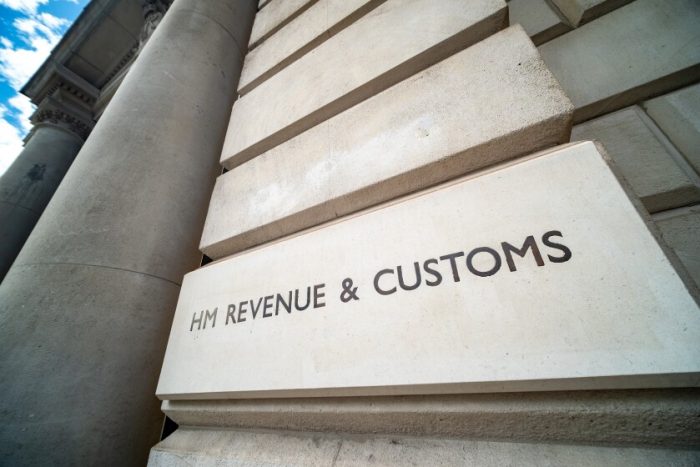
As the UK prepares for the upcoming Budget on 30 October 2024, Chancellor of the Exchequer, Rachel Reeves MP, has outlined her plans to reform and modernise HMRC. Speaking at the Labour Party conference, Rachel Reeves emphasised her commitment to closing the tax gap and improving the efficiency of the tax system. With a range of new measures on the horizon, this update sheds light on the government’s strategy for transforming HMRC into a more efficient, digital-first organisation.
Rachel Reeves’ Push for Electronic Invoicing to Improve Tax Compliance
One of the standout announcements from Rachel Reeves’ speech is the government’s plan to consult on the introduction of electronic invoicing (e-invoicing). The goal is to promote the widespread use of e-invoicing across businesses and government departments, which would significantly reduce errors in tax returns. This move is expected to make tax administration more efficient, accurate, and transparent.
The adoption of e-invoicing has been a long-discussed reform in tax policy, with its ability to streamline processes and minimise mistakes. For businesses, this could mean less time spent on tax compliance and fewer discrepancies in tax filings. The government believes this measure will play a crucial role in reducing the tax gap, and further details will be provided in the coming months.

Strengthening HMRC Leadership with James Murray MP
In another significant move, the government has appointed James Murray MP, the Exchequer Secretary to the Treasury, as the new chair of HMRC’s board. This leadership change aims to provide better oversight of HMRC’s performance and strategy. The board’s role is to challenge and advise on key areas such as HMRC’s delivery, risk management, and capability, though it will not be involved in policy development or individual taxpayer matters.
This appointment highlights the government’s focus on enhancing HMRC’s governance and leadership, ensuring that the tax authority is equipped to handle the complexities of modern tax collection and administration.
A Digital-First Future for HMRC
Rachel Reeves and the government have also committed to publishing a digital transformation roadmap for HMRC in spring 2025. This roadmap will outline the vision for HMRC to become a digital-first organisation. In an era where businesses and government services are increasingly moving online, this digital overhaul is seen as a necessary step in modernising the tax system.
A digital-first HMRC would be better positioned to deal with the complexities of the modern economy, ensuring faster, more accurate tax collection and reducing administrative burdens for taxpayers. With the plan in place, the government aims to make HMRC more accessible and efficient, which could lead to fewer compliance issues and faster processing of tax returns.
Expanding HMRC’s Workforce
To further support HMRC’s modernisation efforts, the government plans to recruit 5,000 additional staff over the next five years. This recruitment drive is part of a broader strategy to ensure HMRC has the capacity to meet its growing responsibilities. The first wave of recruits is expected to join in November 2024, with 650 potential employees already receiving offer letters.
By increasing its workforce, HMRC will be better positioned to tackle the challenges of tax collection, compliance, and enforcement. A larger, well-trained staff will also improve the organisation’s ability to respond to the increasing demands of digital tax administration and help close the tax gap.

Key Manifesto Commitments and Tax Reforms
Rachel Reeves confirmed that the government would deliver on its key manifesto commitments during the Budget on 30 October 2024. Among the most notable commitments are:
- No increases in income tax, national insurance, or VAT rates during this Parliament.
- Capping corporation tax at 25% for the duration of this Parliament, providing stability for businesses.
- Abolishing the ‘non-dom’ regime, which has long been a point of contention in tax policy.
- Charging VAT on private school fees, a move aimed at addressing inequality in education funding.
- Reforming business rates to create a fairer system for businesses across the UK.
These tax reforms aim to reflect what Rachel Reeves has described as the government’s priorities of fairness, economic growth, and closing the tax gap. The somewhat controversial Rachel Reeves policies of abolishing the non-dom regime and the introduction of VAT on private school fees are intended to generate significant revenue, which is said to be used to fund public services and other government initiatives.
ICAEW’s Pre-Budget Submission
The Institute of Chartered Accountants in England and Wales (ICAEW) has also published its pre-Budget submission, outlining the actions it believes are necessary to achieve the government’s economic growth objectives. ICAEW is advocating for policies that support businesses and foster investment in key sectors of the economy.
Following Rachel Reeves’ Budget, ICAEW’s Tax Faculty will present a webinar on 1 November 2024 to provide an in-depth analysis of the key announcements and their implications for businesses and taxpayers.
A Transformative Vision for HMRC
Rachel Reeves’ plans to reform HMRC and modernise the tax system mark a significant step toward addressing the tax gap and improving the efficiency of tax collection. With initiatives such as electronic invoicing, digital transformation, and increased staffing, the government is laying the foundation for a more streamlined and effective tax authority.
By focusing on these reforms, the government is not only working to close the tax gap but also creating a fairer tax system that benefits businesses and individuals alike. As HMRC moves toward a digital-first future, these changes will likely lead to a more responsive and modern approach to tax administration.
At K2 Accountancy Group, we stay up-to-date on the latest tax developments and are here to help businesses navigate these changes. Whether you need assistance with tax planning, compliance, or understanding how these reforms might affect your business, we’re here to guide you through the evolving landscape.
All information in this article should be considered general and not specific advice from the K2 Accountancy Group. Please contact us directly for help and information with regards to your own individual circumstances.
Latest Articles
Autumn 2025 BudgetUpcoming Changes to UK Audit Regulations: What You Now Need to KnowEU Implements New Digital Measures for VAT Compliance. Growing Pains Ahead?International Trade Week Presents New Opportunities and Training for BusinessesBudget 2024 Summary: Key Tax Changes and Challenges for Businesses and Individuals
